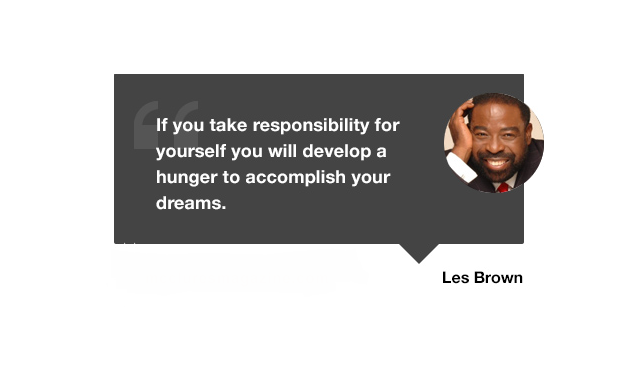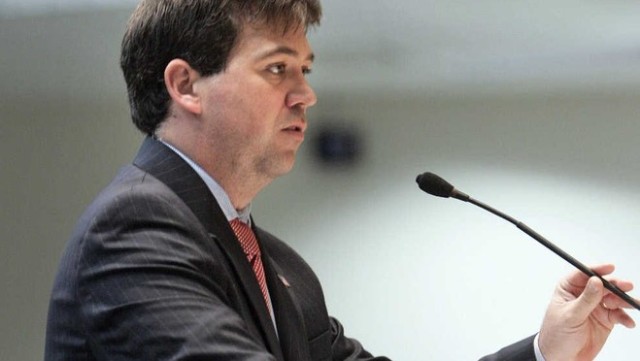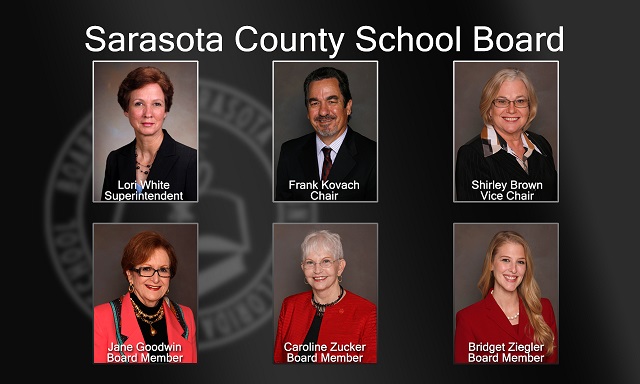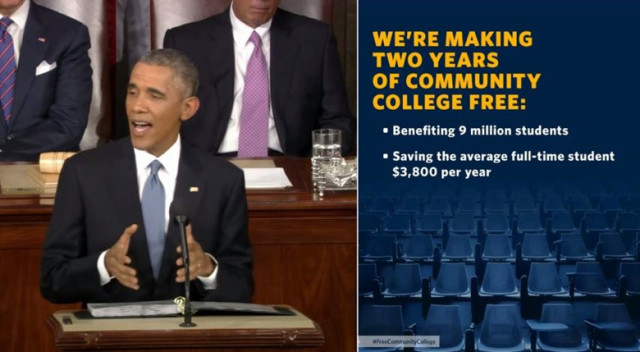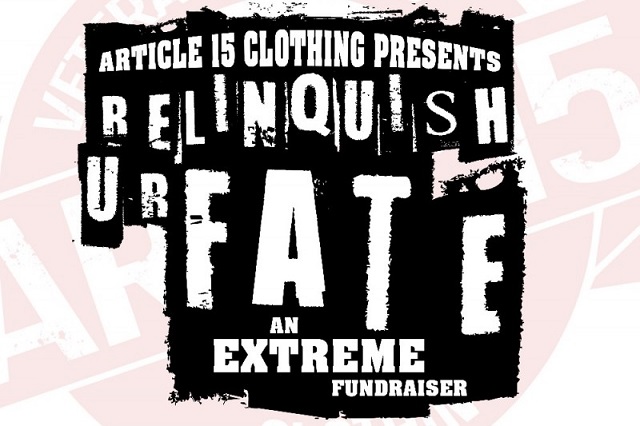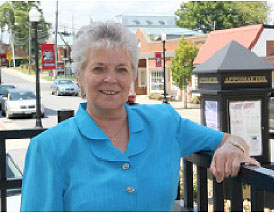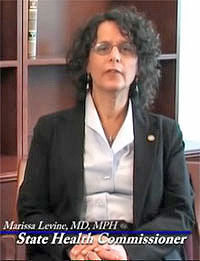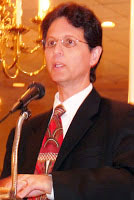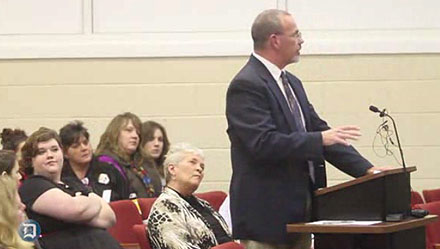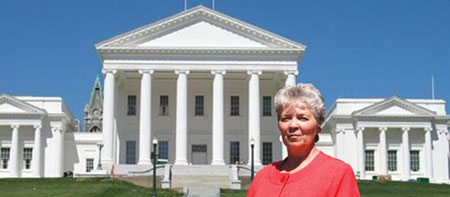Peter Foster is an English-born financial and economics columnist in Canada, where he writes twice weekly for the National Post. He is the author of nine books, the latest of which is Why We Bite the Invisible Hand: The Psychology of Anti-Capitalism. We got to sit down with Peter and talk about that very book.
The Freeman: What is the psychology of anti-capitalism and where does it come from?
Foster: I’ve always been fascinated at peoples’ lack of appreciation of, and sometimes outright hostility towards, capitalism — despite the system’s enormous achievements. I concluded that anti-capitalist sentiment is a combination of economic misunderstanding, moral condemnation, and political exploitation. My book describes a journey — both geographical and intellectual — to trace the roots of such thinking, or rather nonthinking.
The answer to the conundrum obviously has to be “inside our heads.” For me, the issue became clearer when I discovered evolutionary psychology. Its fundamental insight is that our minds were designed in, and for, an environment very different from that in which we now live. It was the face-to-face environment of the relatively small tribe, where everybody knew everybody else, there were no complex markets, no voluntary employment, no technological advance, no money, and no growth.
The moral matrix of that tribal, hunter-gatherer environment was adaptively inclined towards collectivism and condemnation of “greed,” which was synonymous with having more than your fair share. The idea that people can earn their way to becoming super wealthy by serving others — and, in the process, produce a good that is “no part of their intention,” is thus fundamentally counterintuitive.
We are born with certain implicit evolved assumptions about the way the world works. Those assumptions inevitably lag the light-speed evolution of commercial society, particularly in the past two hundred years. We are inclined (and politically encouraged) to conflate inequality — which is inevitable in a free capitalist society and goes along with the rising living standards of ordinary people — with inequity, or “unfairness.” If you are rich, you must be “greedy,” like some tribesman making off with a bigger hunk of the carcass than he can eat. We still retain primitive zero-sum assumptions: that if somebody has something, then somehow it has been acquired at the expense of someone else. Hence inequality is morally condemned. This led me to look into the origins and nature of morality.
The final element in the anti-capitalist mental stew, I suggest, is the urge to power, which effortlessly, indeed subconsciously, exploits economic ignorance and moral confusion for its own ends. That’s why the left perpetually carries on about “gaps” in wealth and income. That’s why the same attractive but counterproductive policies, such as minimum-wage legislation or “buy American,” keep coming back.
The Freeman: Adam Smith is in some way the intellectual father of modern markets. At least, he brought full expression to so many of the concepts. What are some of the ways in which Smith is misunderstood or gets mischaracterized?
Foster: Since he’s the father of a system that’s not understood, and continually condemned despite — or perhaps because of — its success, it’s inevitable that he has been misunderstood and condemned, too.
In Scotland, his home country, his reputation has suffered from being associated with Thatcherism, but then Thatcher has been even more misrepresented than Smith! I point out in the book that around the time I first went to Kirkcaldy, where Adam Smith was born, the local socialist council removed all the signs leading to the town indicating that it was his birthplace. His gravesite in Edinburgh was in disrepair. Ironically, Marx’s tomb in London was in a private cemetery and much better maintained.
The good news is that since then, the site has been somewhat rehabilitated. Now he has a fine statue in Edinburgh, and appears on the British 20-pound note. But his message is still misunderstood. The worst misrepresentation of Smith is that he was somehow a promoter of greed and selfishness, and of grinding the faces of the poor. Another is that he imagined that humans were rational and markets perfect, thus — say his critics — his “system” doesn’t work. In fact, Smith was an insightful student of human irrationality, and noted that the process of the market was inevitably a messy business. His key point was that the invisible hand, which coordinates myriad individuals’ contributions and needs, works much better if left alone than under government “guidance.”
To understand Smith you have to read both his books: The Wealth of Nations and The Theory of Moral Sentiments. He understood that human nature was complex, inclined to self-deceit, and that it tended to lose all sense of proportion when it came to “faction and fanaticism,” that is, politics and religion. But since he had no idea of the vast wealth that the world of the Wealth of Nations would generate, he never considered what problems the Moral Sentiments might have with it, or how those sentiments might be politically exploited in pursuit of grabbing control of the wealth, although he was extremely cynical about politicians.
Ironically, Smith has latterly been embraced by some on the left, who, since they believe they have a monopoly on “moral sentiments,” imagine from merely the title of the book that he must have been one of them. Some claim he was a revolutionary, which indeed he was, but for smaller government, not larger.
In some ways, his message has been hijacked. The Adam Smith lecture in Kirkcaldy has in recent years been given by the likes of Kofi Annan, Amartya Sen, and, most recently, Harvard pseudophilosopher Michael Sandel. All are staunch leftists who despise free markets. Smith must be spinning in his grave.
The Freeman: Darwin’s “dangerous” idea interlinks with and complements Smith’s ideas. And yet apart from unreflectively bashing Smith’s insights in The Wealth of Nations as “social Darwinism,” most contemporary intellectuals have delinked that connection. Can you tell us about this linkage and why anti-capitalists are interested in ignoring it?
Foster: Smith’s thought was profoundly evolutionary, although he was concerned with social rather than biological evolution. In particular, he noted the progression of human society from hunting and gathering to pastoralism, then farming, then commerce and industry. Darwin read Smith at Cambridge and was profoundly influenced by him.
The Smithian market system, guided by the invisible hand, is quite similar to natural selection, even if it is based on more or less deliberate “choices” that are not present in natural evolution. Individuals and companies in relatively free markets constantly throw off innovations and these are then “selected” — and their innovators and producers rewarded — on the basis of their value to consumers and how efficiently they are produced.
The most intriguing connection between Smith and Darwin lies in what a Darwinian perspective says about the evolution of morality, and how that morality might have problems with the much quicker evolution of commercial society in the past two or three hundred years. Smith spotted the paradox that the moral sentiments had been “designed” by the “Great Architect of the Universe” to help men live in society, but at the same time motivated the greatest cruelty. A Darwinian perspective explains the evolution of this two-sided nature of morality as a kind of arms race. Being nicer to those within our tribe promoted solidarity so we could be nastier to outsiders. Evolution should also have much more to tell us about the conscious and subconscious urge to power.
I suggest in the book that that these areas of study have been not so much neglected as avoided. Neo-Darwinism has come under fierce attack from the academic left and is itself permeated with reflexive anti-capitalists such as Richard Dawkins.
The Freeman: You follow President Eisenhower and Karl Popper in warning us about the troubles that come with a small scientific-technocratic elite. What’s wrong with the idea that the experts should give us the best information and tell us what to do? They are, after all, the experts.
Foster: Problems arise when experts become ideologically engaged and start making policy recommendations quite outside their areas of expertise — also when expertise is hijacked by authority for political purposes. The major example of both at the moment is that of projected catastrophic man-made climate change. I note in the book how when something is framed as a moral issue, the “psychology of taboo” comes into play. This explains why those who ask quite reasonable questions about the science of climate are berated as “deniers” or fossil fuel industry “shills” who must be ignored. Perhaps they should even be locked up.
The more practically serious issue is that scientific experts without training in economics, or knowledge of (or even interest in) economic history imagine that the “solution” to the alleged problem is easy: just have a grand top-down global agreement to appropriately “price” pollution, curb emissions, and have wise governments guide economies toward “technologies of the future.”
The majority of scientists tend leftward out of a combination of economic ignorance and still-widespread academic moral condemnation of capitalism. Einstein thought capitalism was just too messy and that central planning was the answer. Of course, there are Nobel economists who think that way, too. They are inevitably on the left, and thus intensely morally engaged as opponents of what Paul Krugman — a typical example — calls “greedism.”
In the book, I note the importance of Thomas Kuhn’s insights about scientific paradigms and how these tend to become professionally entrenched and all the harder to shift if they contain a “moral” element. The alleged moral element of the climate paradigm is unprecedented. If you don’t subscribe to the catastrophic theory, then you have no concern for the poor; you are a reckless and selfish soul prepared to play Russian roulette with the planet. Thus, one must not quibble. One must get with the program, which unfortunately happens to be just a variant on the same old tried-and-failed socialism.
The Freeman: You describe macroeconomic models as conceptual “Rube Goldberg” contraptions. Why?
Foster: We all construct simplified models to help us understand the world, but the economy is far too complex and uncertain to be modeled. We obviously understand certain economic relationships and trends, but macroeconomic modelers are examples of what Adam Smith called “men of system.” Instead of seeing the economy as a chess board with themselves as the players — the analogy Smith used — modern men of system have, since Keynes, seen it as a kind of hydraulic device that they control by twiddling conceptual knobs and pulling conceptual levers. Or they see it as being like a car or airplane that not only needs someone in the driver’s seat but is also prone to break down and thus needs economic “mechanics.”
But the essence of the free-market economy is that it is a self-ordering and self-correcting organic process, and it depends — as Hayek pointed out — on vast amounts of dispersed knowledge and personal preferences that are simply not available to modelers any more than they were available to central planners. Imagining that you can “run” the economy by assiduously fiddling with interest and tax rates and spending on “stimulus” is a delusion fed by modeling. People think these policies are valid because every government engages in them, but, as the great Austrian economists Ludwig von Mises and Friedrich Hayek pointed out, such government interventions can’t cure booms and busts. In fact, they are usually the cause of them.
The Freeman: And why has this form of economics held sway for so long?
Foster: I trace the rise of macroeconomics and the embrace of Keynesianism — and the corresponding rejection of the invisible hand — to their political attractiveness, not their economic viability. People have great trouble in working out who is responsible for what in a mixed economy. If government intervenes and the economy grows, then people are easily persuaded that it is government macrointervention that has masterminded the growth rather than retarded it. And when things go bad again, “unfettered capitalism” is a convenient scapegoat.
The Freeman: Tell us about gross national happiness (GNH). Isn’t this a superb idea?
Foster: Who could argue with the pursuit of happiness? The Founding Fathers thought it was central to any free and vibrant society. Trying to calculate it, however, is folly on stilts. There’s no objective way of measuring any individual’s happiness, so the idea that you might somehow aggregate that of society as a whole is ridiculous. As usual, this idea arose from the left, which notes that such statistical measures as gross national product are incomplete. Of course they are! They just measure commercial output in money terms, a measurement that is itself imperfect. Once you start trying to incorporate “social connectedness” or any number of other murky metrics, then you wind up with something of which Rube Goldberg could never have conceived.
At root, GNH is just another assault on capitalism, or rather on the parody of capitalism as being all about mere material things, and “getting and spending,” a system that drives out all that is true, good, and important in human relationships — and leaves nothing but Marx’s “cash nexus.” In fact, capitalism has spawned wealth, welfare, charity, leisure, science, art, and human flourishing like no other system in history. It is failure — or refusal — to see this that demands psychological analysis. That’s why I wrote Why We Bite the Invisible Hand.
The Freeman: In your book, you offer grudging respect for Ayn Rand, but can you tell us where she goes wrong?
Foster: I think Ayn Rand was a remarkable woman, and had marvelous insights about the nature of capitalism and its enemies, but I think her problem was that she was in some ways too rational. Of course, reason is all we have to understand the world, but one of the first tasks of reason is to understand unreason. Rand certainly had tremendous insights into the unspoken political ambitions behind anti-capitalism, but I believe her mistake, and that of her followers, was to believe that you can make a rational moral case for capitalism without going into the roots of the moral case against it. There’s no point in being rationally correct if people aren’t listening. You have to try to understand why they aren’t listening. Objectivists seem to believe that it’s not important to look at mental evolution and that all that matters is where we are now, but I suggest that you can’t really understand what we are unless you understand where we came from and how we got here.
I’m sure it will offend many objectivists, but I use the example of Rand’s long-term affair with Nathaniel Branden, and its messy conclusion, to suggest that even the most rational people can be overwhelmed by emotion, and that applies as much to ideology as romance. This is not a “smear” of Rand but an attempt to point out that if you really want to take on and defeat the left’s arguments, you need to understand them. And understanding others begins with philosophy’s first rule: try to understand yourself.
I broadly agree with Rand’s moral position, it’s just that objectivists could do a much more effective job of promoting it. I still think Atlas Shrugged is one of the most original books ever written.
The Freeman: Who is the “greenest businessman in America” and what can we learn from him?
Foster: I have a chapter on Ray Anderson, who created and built a Georgia-based company called Interface into one of the largest flooring companies in the world. The “greenest businessman in America” tag comes from his obituary, but I use it as having a double meaning. Anderson was green in the sense of embracing radical environmentalism and its condemnation of industrial society, but he was also green in the sense of being naïve about exactly what he was supporting, which was ultimately suicidal for entrepreneurs such as himself and for society as a whole. I suggest that he was the kind of man who would make sure that the rope he manufactured for his own hanging would be recycled! Anderson was an outstanding example of a businessman who swallowed the green Kool-Aid. I describe how he came under the influence of a group of charlatans and flimflam men, including green gurus such as Paul Hawken and Amory Lovins, but how all their grand plans to climb “Mount Sustainability” while leaving zero “footprint” weren’t going anywhere that free markets don’t tend to go anyway.
Anderson was a prime example, although a far from rare one, of the anti-capitalist capitalist, a breed that stretches from before Marx’s partner Engels — who was a cotton manufacturer — up to current examples such as George Soros and Michael Bloomberg. The corporate world is filled with executives like Anderson who think it sophisticated to sign on to “corporate social responsibility” and “sustainable development,” without understanding the subversive nature of these concepts.
The Freeman: If you had to pick one book besides Why We Bite the Invisible Hand for our readers to pick up, what would it be?
Foster: That’s the toughest question yet! Steven Pinker’s The Blank Slate. It’s a marvelous book about the evolved nature of the human mind and how and why that idea has been resisted.
The Freeman: Peter Foster, it’s been a pleasure.
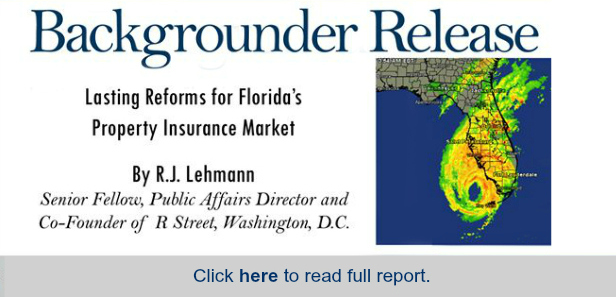 Unprecedented hurricane landfall inactivity in Florida presents opportunity for policymakers to help shield Florida’s economy from inevitable, storm-related threats report states.
Unprecedented hurricane landfall inactivity in Florida presents opportunity for policymakers to help shield Florida’s economy from inevitable, storm-related threats report states.








